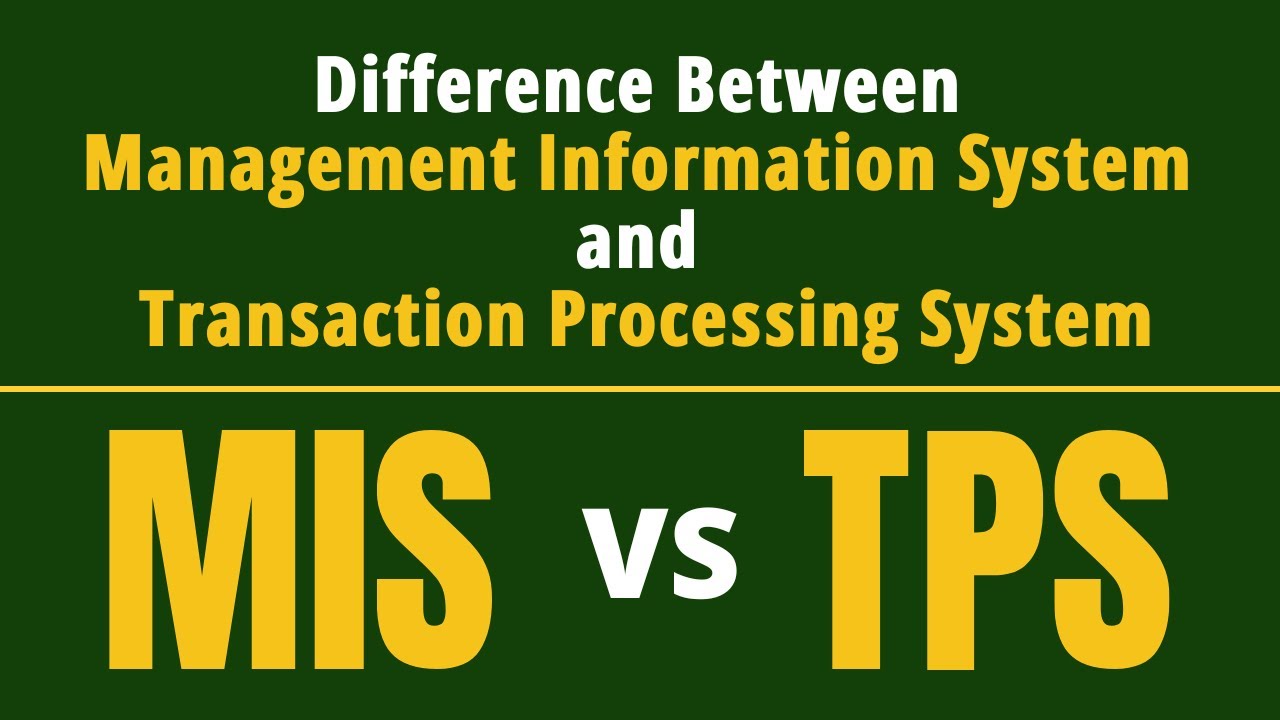UMN SI MIS VHD M10 P01 180723 V00 UP
Summary
TLDRIn this video, Ahmad and Faza introduce the concept of Information Systems, with a focus on Transaction Processing Systems (TPS) and their role in organizations. TPS helps companies manage transactional data by automating processes such as checking inventory levels and generating reports, which aids decision-making. The video also covers Functional Area Information Systems (FAIS), which support various departments like human resources and marketing, streamlining operations and improving collaboration. Integrated systems at the operational level track inventory, schedules, and quality, helping businesses address issues before they escalate.
Takeaways
- 😀 Transaction Processing Systems (TPS) are a type of information system that collects and processes transaction-related data.
- 😀 TPS helps businesses update inventory levels and generate reports to assist in decision-making.
- 😀 TPS is particularly valuable for small retail companies to manage their databases and improve operational decisions.
- 😀 Information Systems support functional areas like human resources, marketing, and operations to automate tasks and enhance decision-making.
- 😀 An integrated Information System ensures smooth operations across departments by linking functional areas and streamlining processes.
- 😀 These systems enable companies to track critical data such as inventory levels, production schedules, and quality control.
- 😀 Information Systems help address operational issues proactively by providing insights before they escalate into major problems.
- 😀 The integration of functional areas within a company allows for better collaboration and information sharing between departments.
- 😀 TPS contributes to effective resource management and supports strategic business planning by providing operational insights.
- 😀 Information Systems are essential tools for improving the efficiency and productivity of a company's operations.
Q & A
What is a Transaction Processing System (TPS)?
-A Transaction Processing System (TPS) is a type of information system that collects, stores, and processes transaction data. It updates organizational databases and generates reports, helping businesses manage operations and make informed decisions.
How does a TPS help in a retail company?
-In a retail company, a TPS helps by managing the company's database. It automatically tracks inventory levels and updates them after transactions, allowing for better decision-making in managing stock and operations.
What is the role of Information Systems in supporting functional areas of a company?
-Information Systems support various functional areas like human resources, marketing, and operations. They automate processes, improve decision-making, and provide insights that enhance overall business efficiency.
Can you give an example of how Information Systems support business operations?
-An example is how an Information System helps track inventory levels and production schedules. It allows different departments to collaborate effectively, ensuring that operations run smoothly across the company.
What are integrated Information Systems and their role in decision-making?
-Integrated Information Systems support a company’s planning and decision-making by providing a unified view of operations across functional areas. They help managers track performance metrics, such as inventory and quality control, to make data-driven decisions.
How do Information Systems help in tracking quality control?
-Information Systems allow managers to monitor quality control processes, identify potential issues early, and address them before they escalate into major problems. This improves product quality and operational efficiency.
What kind of decisions can managers make with the help of TPS?
-With the help of TPS, managers can make decisions regarding inventory levels, production scheduling, and other operational aspects. They are provided with accurate and up-to-date information to guide their decisions.
Why is data integration important in Information Systems?
-Data integration is important because it ensures that information from different functional areas is unified, enabling better coordination and decision-making. It supports a seamless flow of information across departments, reducing silos and improving collaboration.
How does TPS contribute to better decision-making in an organization?
-TPS contributes to better decision-making by providing accurate and timely transaction data. This allows managers to monitor operations, identify trends, and make informed decisions that improve business performance.
What are the benefits of automating tasks through Information Systems?
-Automating tasks through Information Systems saves time, reduces errors, and improves efficiency. It allows employees to focus on higher-value tasks while ensuring that routine tasks are performed consistently and accurately.
Outlines

This section is available to paid users only. Please upgrade to access this part.
Upgrade NowMindmap

This section is available to paid users only. Please upgrade to access this part.
Upgrade NowKeywords

This section is available to paid users only. Please upgrade to access this part.
Upgrade NowHighlights

This section is available to paid users only. Please upgrade to access this part.
Upgrade NowTranscripts

This section is available to paid users only. Please upgrade to access this part.
Upgrade NowBrowse More Related Video

Types of Information Systems (TPS, MIS, and DSS)

Executive Information Systems - A-Z of business terminology

Management Information Systems - Basics

Jenis-jenis Sistem Informasi

Management Information System vs Transaction Processing System | Difference between TPS and MIS | 8

Lec - 40 : Transaction System in DBMS | Transaction processing concept
5.0 / 5 (0 votes)